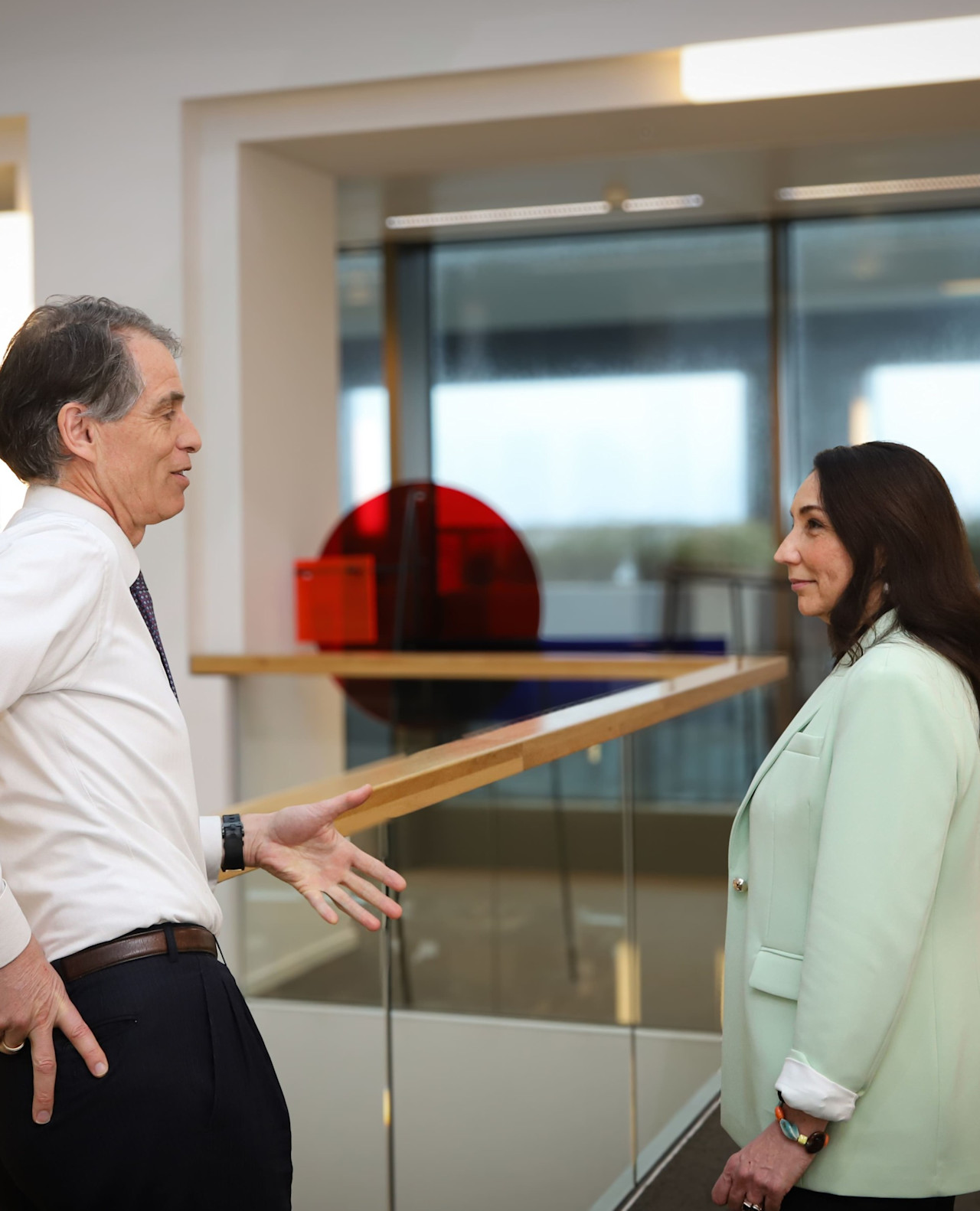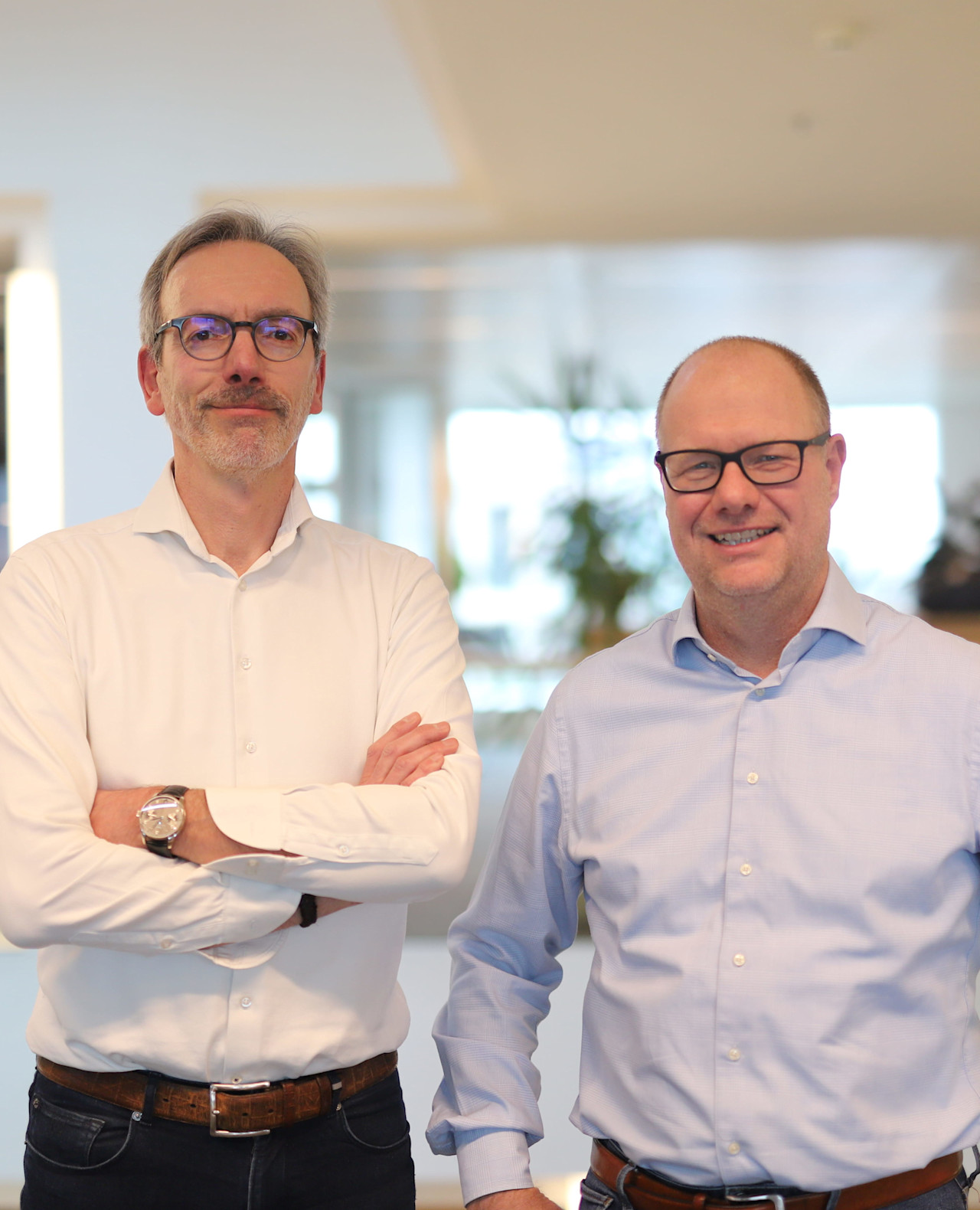

A good enough end to a roller coaster COP
COP28 was a two-week roller coaster that started on a high, plunged midway into controversy and emerged with what some hail as a landmark achievement. But not everyone was thrilled with the ride or the finale.
Summary
- Incremental evolution, not revolution is built into the Paris plan
- COP28 agreement means serious progress in this decade
- Billions committed but trillions needed to finance climate transition
In a pre-COP discussion, we asked Lucian Peppelenbos, Robeco’s climate and biodiversity strategist, for his views on a successful COP. This week, we checked back to see whether his initially cautious optimism had changed, and to get his final verdict on whether it was a good or bad COP. Meanwhile, Peter van der Werf, Robeco’s Head of Engagement and top COP28 envoy, reports on what went on inside COP’s colored zones and its impact on investors.
A first-ever global ‘stocktake’ revealed the world is still underperforming and headed toward a trajectory of 2.4°C by 2050. Though it was insufficient, Peppelenbos is satisfied. “Pre-COP policy pledges of governments reduced global emissions from a current 59 gigatonnes (GT) to 38 GT by 2030. During the summit countries agreed to an additional cut of 4 GT by 2030, which is slightly more than 10%, so I am happy with the progress.”
“To make good on that target, 130 countries agreed to triple renewable energy and double energy efficiency by 2030. In addition, oil and gas companies agreed to eliminate methane emissions, a short-lived but super-potent greenhouse gas – and not by 2050 but by 2030. That translates to serious accelerated action in this decade.”
Though that outcome may seem incremental, Peppelenbos adds that this is how the COP process was intended to work. “In Paris, the emissions trajectory was at 4°C by 2050, now we’ve agreed to 2.2°C. When delegates meet again next year, temperature trajectories will move down even further.”
Noteworthy still is that the current political landscape didn’t undermine progress. “Russia is still at war with Ukraine, the Middle East is unsettled, and there’s friction between the US and China. It was significant that leaders still agreed to lower emissions despite geopolitical tensions globally,” he says.
Noteworthy still is that the current political landscape didn’t undermine progress

Good COP indicator:
A 10% improvement on 2.4°C.

Verdict:
“It’s a good COP. Though it’s not enough to put us at 1.5°C or even below 2°C, a 4 GT reduction in emissions is still huge, and more than a 10% improvement.”
A cop-out or conquest on fossil fuel phase-outs?
Even before convening, observers saw a ruling on fossil-fuel phase-outs as a potential showstopper. That wasn’t helped by skeptical remarks made by the United Arab Emirates’s top COP envoy and presiding president Sultan Al Jaber, who questioned the science behind fossil fuel phase-outs midway through. Optimists saw Al Jaber – who also heads the UAE’s state energy giant ADNOC – as a crucial mediator between net-zero hardliners, reluctant petrostates and Big Oil. As Peppelenbos called it in November, “if there is anyone who can broker a deal, it’s the UAE.”
In the end, the hoped for ‘phase-out’ language was softened to a ‘transitioning away’ from fossil fuels in energy systems. Many hail that as a historic victory for combatting climate change. Peppelenbos’ enthusiasm is more muted. “We’ve known fossil fuels cause global warming since the 1970s, so it is really remarkable that COP leaders are affirming only now what has been obvious to scientists for 50 years.”
“Some say it marks the beginning of the end of fossil fuels. That’s a bit dramatic. But it is still significant that for the first time in 27 COP sessions, countries have officially named fossil fuels as a cause of the climate crisis. Until now, that has been the elephant in the room.”
Beyond naming, he says that timing also makes this a big deal. “The agreement explicitly says ‘accelerated action in this decade.’ That is ambitious given many developing countries still need fossil fuels to grow their economies.”
As an engagement specialist that regularly meets with country and company heads to champion decarbonization, Peter van der Werf has first-hand knowledge of the challenges that emerging economies face. “In Dubai, I met with Colombian oil and gas executives whose company provides jobs, income and energy to 1.2 million households. For many countries, decarbonizing comes with huge social and economic challenges. We need to be flexible in our demands,” he says.

Good COP:
An explicit statement, even if less ambitious, will be historic.

Verdict:
“A good COP. We’ve finally acknowledged the elephant in the room. A ‘transition away’ provides a mandate for action and accountability from oil and gas producers that was heretofore absent.”
Rich countries are owning up to paying out
Climate change represents a frightening future for developed countries that is already a damaging reality for many in the developing world. Those least responsible for but hardest hit by climate change want rich nations to pay up.
“The idea of a loss and damage fund has been on the table for decades, but industrialized countries never supported it because they didn’t want the liability for past emissions. Agreeing to its set up was the big achievement of COP27. It’s now an operational funding facility after 20 years of debate.”
Peppelenbos praises Al Jaber’s astute leadership and fast action on a potentially thorny topic. “It was a smart move by the President to tackle this upfront. The approval was announced on the opening day, which helped reduced potential political tensions and provided positive momentum to tackle more contentious issues on the agenda.”

Good COP:
Agreement among the 24 nations on the facility is ratified by the session.

Verdict:
“On this point, it was a good COP. Seed money is around USD 800 million so far. That’s small compared to the USD 100 billion in damage these countries sustain annually, but it will grow.”
Falling short on climate finance
Beyond loss and damage, massive financial flows are needed for the transition to a net-zero economy, as well as global warming adaption. Currently, climate finance is six times lower than what is required, and most of that is spent in industrialized countries instead of developing economies where the need is greatest.
“In Dubai countries and companies committed to an additional USD 85 billion for climate finance, which is great news. But these billions need to unlock trillions. Building renewable infrastructure can be risky in developed countries, but even more so in developing countries due to macroeconomic issues such as unstable currencies and governments. We need more involvement from multilateral institutions to provide guarantees that reduce these risks.”
While in Dubai, Van der Werf met with the Indonesian Ministry of Finance to discuss how to attract investors and efficiently distribute funds to reduce deforestation in Indonesia. Home to a third of the world’s rainforest, the country is setting up a fund that will issue bonds through which investors can support forest conversion.
Peppelenbos says carbon markets are also essential for funding climate action. “Despite their promise, countries failed to make progress in making carbon market mechanisms operational. As a result, we’ve seen carbon prices drop in the days after the summit.”

Good COP:
More operational agreements to unlock climate finance.

Verdict:
“Bad COP. There was more talk than concrete action.”
Expanding solutions opens doors for investors
Overall, COP28 has reconfirmed the pathway to net zero. Though we still need oil and gas, their dominance is beginning to end, as we transition toward renewables, electrification and energy-efficient consumption. By affirming nuclear energy and hydrogen, COP28 leaders have rightfully recognized the need to expand the toolkit. This is going to widen opportunities for investors to seek investments that achieve both returns and impact.
Transition finance in emerging economies will be the name of the game in the coming years
The key challenge is to unlock these investments where they are most needed – transition finance in emerging economies will be the name of the game in the coming years. Besides capturing these opportunities, investors have an important role to play by engaging with companies and governments on accelerated climate action and enabling policies.
Get the latest insights
Subscribe to our newsletter for investment updates and expert analysis.
Important information
This information is for informational purposes only and should not be construed as an offer to sell or an invitation to buy any securities or products, nor as investment advice or recommendation. The contents of this document have not been reviewed by the Monetary Authority of Singapore (“MAS”). Robeco Singapore Private Limited holds a capital markets services license for fund management issued by the MAS and is subject to certain clientele restrictions under such license. An investment will involve a high degree of risk, and you should consider carefully whether an investment is suitable for you.




























